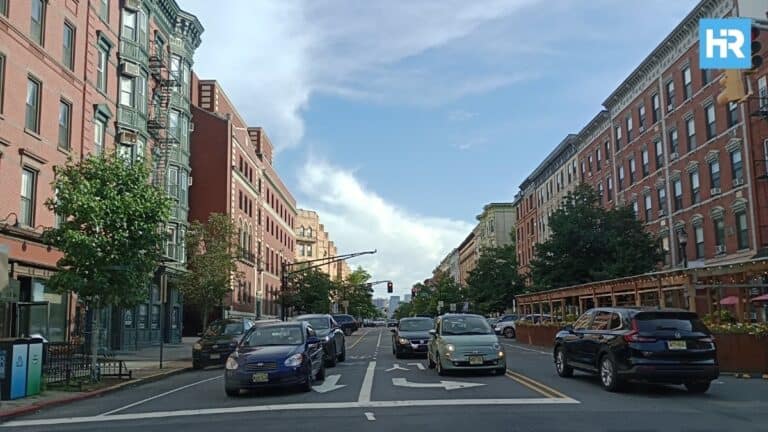
After months of heated debates and back-and-forth discussions, Hoboken’s City Council has finally agreed on a $147 million budget with a 3.4% tax increase.
The journey to get here wasn’t easy, with council members split on the best way to handle rising costs while keeping taxes in check.
Here’s what happened, why it took so long, and what it means for Hoboken residents.
- After months of discussions, the Hoboken City Council approved a $147 million budget with a 3.4% tax hike.
- The tax increase was reduced from the initial 5.9% proposal, but not all council members were happy.
- There were calls to improve the budget process next time, with suggestions like starting discussions earlier and forming a special committee.
Hoboken City Council Approves $147M Budget
After months of back-and-forth arguments, the Hoboken City Council has finally approved a budget of $147,171,014.87, with a 3.4% tax increase.
It took over four months of debate to reach this point, with many council members still unsure about some parts of the budget, but they agreed it was time to move on and make a decision.
During the meeting, Councilman-at-Large Jim Doyle, who had been leading it since Council President Jen Giattino had attended over the phone, admitted he wasn’t entirely sure what they were voting on.
Giattino quickly explained that the state had sent over an amendment just hours before the meeting.
Frustration Over Missing Documents
Councilwoman Emily Jabbour explained that the latest amendment added $254,000 to the employee health insurance line.
Still, other council members, like Councilman Paul Presinzano, were frustrated that they didn’t have physical copies of the amendment. Presinzano even said he wouldn’t vote on anything he hadn’t personally reviewed.
The council rejected the original budget in April, which included a much higher 5.9% tax increase.
Council Pushes for Better Planning Next Year
Councilman Presinzano suggested starting the budget process earlier next year to avoid delays, proposing they begin in September.
Jabbour also suggested creating a special committee to focus solely on the budget. Still, Councilman Mike Russo questioned why they needed a separate committee when they already had a finance committee.
Giattino supported the idea of a special group, saying it could focus only on making budget changes.
Councilmembers Fisher and Ramos, who had offered budget amendments earlier in the year, said they wanted to be involved in that process.
Councilman Russo asked if it was realistic to start budget planning in September, and Business Administrator Jason Freeman explained they wouldn’t have solid numbers until January, but they could start talking about general plans earlier.
Split Vote, But the Budget Passes
When it came time to vote, the amendment for health insurance passed with a 6-3 vote.
Councilmembers Cohen, Fisher, Ramos, Giattino, Doyle, and Jabbour voted yes, while Councilmembers Presinzano, Russo, and Quintero voted against it.
Quintero shared similar concerns, pointing out that the city was using too much of its reserves and might be unable to cover important areas like employee healthcare fully.
However, Fisher argued that using the city’s reserves this year to help residents who are struggling with affordability was the right decision.
Councilman Phil Cohen supported the budget, explaining that while no one likes tax increases, they’re sometimes necessary due to rising costs, like pensions and city employee wages.
Russo Criticizes the City Needs to Cut Spending
Russo remained firm in his opposition to the budget, saying the city needs to do more to cut costs instead of raising taxes.
Furthermore, he suggested that the council should have reconsidered large contracts, like the $7.5 million contract for garbage collection, but said that wasn’t even discussed.
At the same time, he criticized the council for not looking at other options to save money.
Ultimately, the budget was passed with the same 6-3 votes as the amendment.
This decision closes months of debates but leaves questions about how the city will handle future budgets.
Looking Ahead: Early Planning and Committee Discussions
While the budget has now been approved, there is still much talk about improving the process for the next fiscal year.
In fact, many council members have called for earlier discussions and possibly the formation of a new committee dedicated to handling the budget.
For now, Hoboken residents will see a 3.4% increase in their municipal taxes, a compromise many council members hope will stabilize the city’s finances while keeping the tax burden as low as possible.









